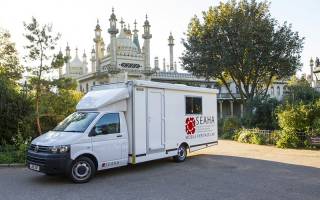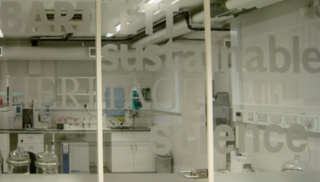Information about the modules that make up the Science and Engineering in Art, Heritage and Archaeology MRes programme, including the field project and dissertation.
Compulsory taught modules
Science and Engineering in Art, Heritage and Archaeology in Context
This is a taught module that aims to provide an introduction into the variety of aspects of heritage science. At the end of the module, you will be able to:
- use the framework of heritage values to interpret scientific results;
- understand, interpret and document typologies of art, heritage and archaeology;
- recognise value typologies;
- appreciate aspects of material and environmental change;
- understand issues related to prevention, intervention and risk management;
- digitisation and preservation of digitally born information
- strategically evaluate the impact that heritage research can have on wider societal and environmental issues.
- review the state–of–the–art in the field of your research interest
SEAHA Transferable Skills
This module provides the essential transferrable skills for researchers working in cross-disciplinary environments. This module will enable you to:
- interpret scientific results in wider contexts to maximise the impact of research;
- understand principles of heritage management;
- discuss legal and policy frameworks affecting cultural heritage;
- understand processes of knowledge generation and protection;
- present scientific work to various types of audiences.
Research modules
SEAHA Research Methodology
This module aims to provide a solid foundation for scientific methods to be used in your research project. You will develop excellent knowledge and understanding of heritage materials and environments and their interdependences, and techniques of their study, taking the object of study in the context of its historical, artistic, material, social, technological and cultural environments. The following aspects will be discussed and researched:
- fundamental principles of measurement, statistics and data evaluation;
- drivers of material change;
- measurement, assessment and modelling of the environment.
You will spend a week developing research methodology for your research project — this could be based on laboratory, field or desktop (theoretical) research.
SEAHA Field Project
This involves a group research project, where team working and communication skills are essential for successful delivery. In the frame of this field research project, a one–week 'living laboratory' will be organised in Herefordshire You will develop a strong sense of leadership, teamworking, negotiation and management and will develop skills in problem–solving and communication to various audiences, including heritage managers. This module will enable you to:
- understand the principles of management of scientific and research projects;
- develop understanding of teamworking, time and resource management;
- apply heritage science to real–life problems in situ;
- use portable, non-destructive techniques and interpret complex data on real objects.
Dissertation
SEAHA Master's Dissertation
The dissertation requires you to fully develop the topic of your master's dissertation under the guidance of your supervisor and to build on work developed in previous modules. You may wish to undertake a placement in a heritage institution, where research material can be developed or collected; however, such a placement is not compulsory. This module will enable you to:
- plan, carry out, deliver and interpret heritage scientific research on the basis of scientific evidence and literature research;
- confidently carry out laboratory, desktop and field research and apply scientific research to answer heritage research questions;
- discuss research results and set them into wider contexts and policy frameworks;
- discuss application of scientific research to heritage interpretation, management, conservation or access.
 Close
Close



